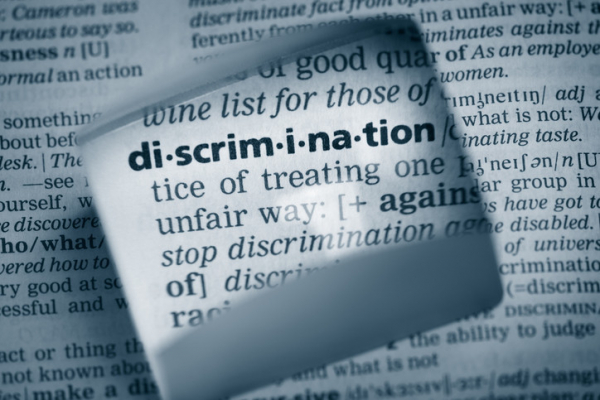
Experiencing discrimination in the workplace — where many adults spend one-third of their time, on average — may be harmful to your heart health.
A 2023 study in the Journal of the American Heart Association found that people who reported high levels of discrimination on the job were more likely to develop high blood pressure than those who reported low levels of workplace discrimination.
Workplace discrimination refers to unfair conditions or unpleasant treatment because of personal characteristics — particularly race, sex, or age.
How can discrimination affect our health?
“The daily hassles and indignities people experience from discrimination are a specific type of stress that is not always included in traditional measures of stress and adversity,” says sociologist David R. Williams, professor of public health at the Harvard T.H. Chan School of Public Health.
Yet multiple studies have documented that experiencing discrimination increases risk for developing a broad range of factors linked to heart disease. Along with high blood pressure, this can also include chronic low-grade inflammation, obesity, and type 2 diabetes.
More than 25 years ago, Williams created the Everyday Discrimination Scale. This is the most widely used measure of discrimination’s effects on health.
Who participated in the study of workplace discrimination?
The study followed a nationwide sample of 1,246 adults across a broad range of occupations and education levels, with roughly equal numbers of men and women.
Most were middle-aged, white, and married. They were mostly nonsmokers, drank low to moderate amounts of alcohol, and did moderate to high levels of exercise. None had high blood pressure at the baseline measurements.
How was discrimination measured and what did the study find?
The study is the first to show that discrimination in the workplace can raise blood pressure.
To measure discrimination levels, researchers used a test that included these six questions:
- How often do you think you are unfairly given tasks that no one else wanted to do?
- How often are you watched more closely than other workers?
- How often does your supervisor or boss use ethnic, racial, or sexual slurs or jokes?
- How often do your coworkers use ethnic, racial, or sexual slurs or jokes?
- How often do you feel that you are ignored or not taken seriously by your boss?
- How often has a coworker with less experience and qualifications gotten promoted before you?
Based on the responses, researchers calculated discrimination scores and divided participants into groups with low, intermediate, and high scores.
- After a follow-up of roughly eight years, about 26% of all participants reported developing high blood pressure.
- Compared to people who scored low on workplace discrimination at the start of the study, those with intermediate or high scores were 22% and 54% more likely, respectively, to report high blood pressure during the follow-up.
How could discrimination affect blood pressure?
Discrimination can cause emotional stress, which activates the body’s fight-or-flight response. The resulting surge of hormones makes the heart beat faster and blood vessels narrow, which causes blood pressure to rise temporarily. But if the stress response is triggered repeatedly, blood pressure may remain consistently high.
Discrimination may arise from unfair treatment based on a range of factors, including race, gender, religious affiliation, or sexual orientation. The specific attribution doesn’t seem to matter, says Williams. “Broadly speaking, the effects of discrimination on health are similar, regardless of the attribution,” he says, noting that the Everyday Discrimination Scale was specifically designed to capture a range of different forms of discrimination.
What are the limitations of this study?
One limitation of this recent study is that only 6% of the participants were nonwhite, and these individuals were less likely to take part in the follow-up session of the study. As a result, the study may not have fully or accurately captured workplace discrimination among people from different racial groups. In addition, blood pressure was self-reported, which may be less reliable than measurements directly documented by medical professionals.
What may limit the health impact of workplace discrimination?
At the organizational level, no studies have directly addressed this issue. Preliminary evidence suggests that improving working conditions, such as decreasing job demands and increasing job control, may help lower blood pressure, according to the study authors. In addition, the American Heart Association recently released a report, Driving Health Equity in the Workplace, that aims to address drivers of health inequities in the workplace.
Encouraging greater awareness of implicit bias may be one way to help reduce discrimination in the workplace. Implicit bias refers to the unconscious assumptions and prejudgments people have about groups of people that may underlie some discriminatory behaviors. You can explore implicit biases with these tests, which were developed at Harvard and other universities.
On an individual level, stress management training can reduce blood pressure. A range of stress-relieving strategies may offer similar benefits. Regularly practicing relaxation techniques or brief mindfulness reflections, learning ways to cope with negative thoughts, and getting sufficient exercise can help.
About the Author

Julie Corliss, Executive Editor, Harvard Heart Letter
Julie Corliss is the executive editor of the Harvard Heart Letter. Before working at Harvard, she was a medical writer and editor at HealthNews, a consumer newsletter affiliated with The New England Journal of Medicine. She … See Full Bio View all posts by Julie Corliss
About the Reviewer

Howard E. LeWine, MD, Chief Medical Editor, Harvard Health Publishing
Dr. Howard LeWine is a practicing internist at Brigham and Women’s Hospital in Boston, Chief Medical Editor at Harvard Health Publishing, and editor in chief of Harvard Men’s Health Watch. See Full Bio View all posts by Howard E. LeWine, MD



